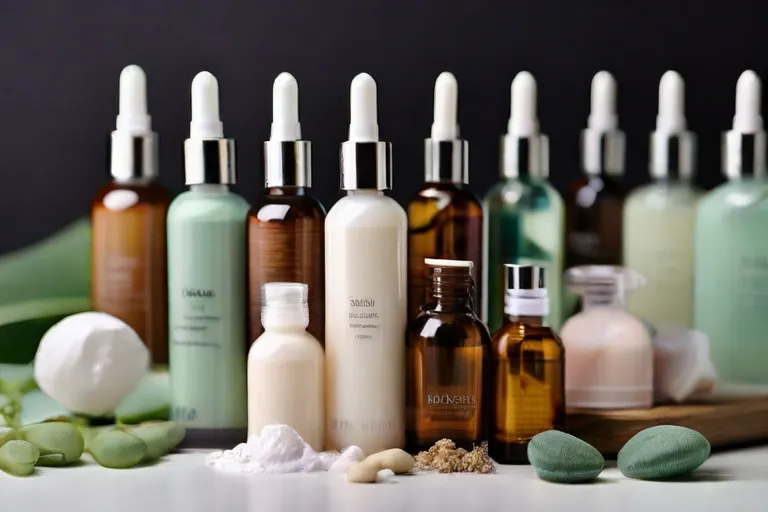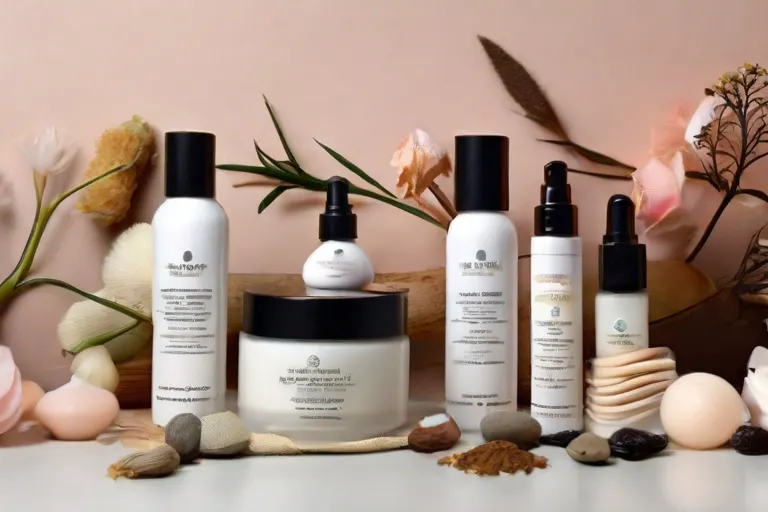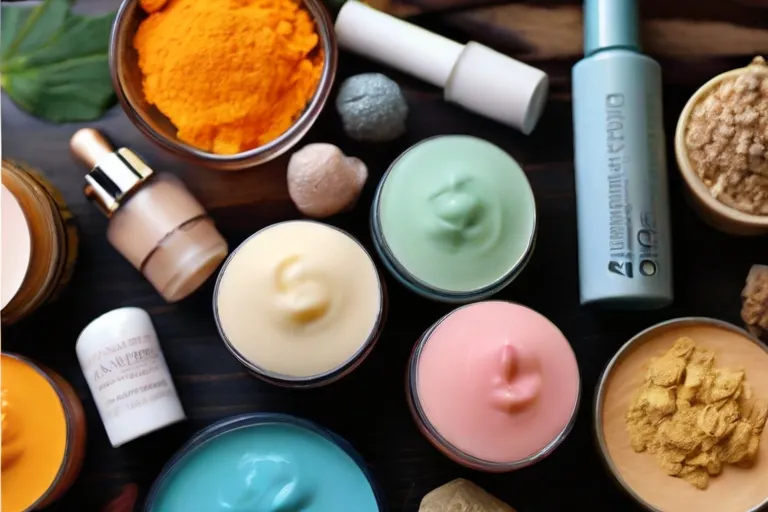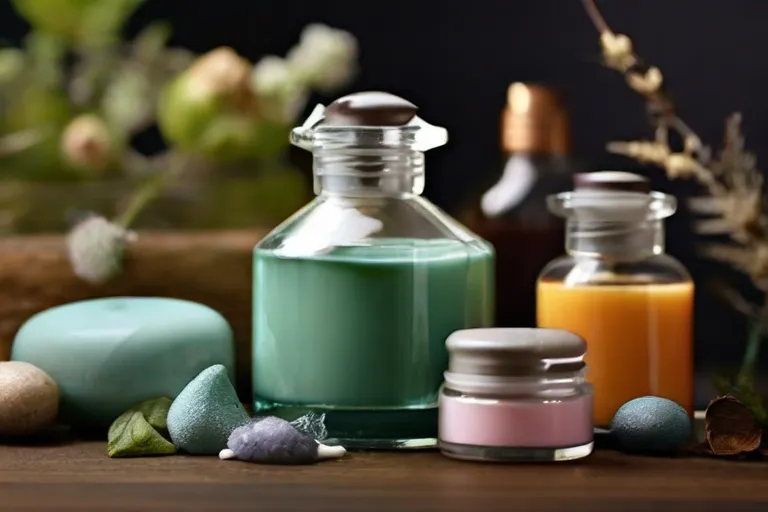Are There Harmful Ingredients I Should Avoid in Skincare Products, and How Can I Identify Them?

Are There Harmful Ingredients I Should Avoid in Skincare Products, and How Can I Identify Them?
Identifying harmful ingredients in skincare products is crucial for maintaining healthy skin. Unfortunately, many skincare products on the market contain harmful chemicals that can cause skin irritation, allergies, and even long-term health issues. By learning how to read and understand the ingredient labels on skincare products, you can avoid these harmful ingredients and make informed choices for your skincare routine.
Key Takeaways:
- Know What to Avoid: Be cautious of harmful ingredients such as parabens, sulfates, phthalates, and formaldehyde in your skincare products.
- Read Labels Carefully: Take the time to read product labels and familiarize yourself with common harmful ingredients to look out for.
- Avoid Fragrances and Dyes: Skincare products with artificial fragrances and dyes can be irritating to the skin, so opt for fragrance-free and dye-free options.
- Research Ingredients: Educate yourself about potentially harmful chemicals and do your own research to make informed decisions about the products you use on your skin.
- Look for Natural Alternatives: Consider switching to natural and organic skincare products that are free of harmful chemicals and provide gentle care for your skin.
Understanding Skincare Ingredients
If you've ever found yourself puzzled by the long list of ingredients on your skincare products, you're not alone. Understanding skincare ingredients can seem like deciphering a complex code, but it doesn't have to be intimidating. By familiarizing yourself with some basic concepts, you can become a savvy consumer who makes informed choices about the products you use on your skin.
Decoding the Label: Skincare Ingredient Basics
For those new to skincare ingredient labels, it's helpful to know that ingredients are listed in descending order of concentration, with the most abundant ingredient listed first. This means that if a potentially harmful ingredient is near the top of the list, you may want to reconsider using that product. Familiarizing yourself with common skincare ingredients and their potential effects can empower you to make educated decisions for your skin's health.
Why Ingredient Awareness Matters
Skincare products are designed to be absorbed by your skin, which means that the ingredients they contain can have a direct impact on your health. This is why understanding skincare ingredients is crucial – it allows you to avoid potential irritants, allergens, or even toxic substances that could harm your skin or overall well-being. By being aware of what you're putting on your skin, you can make choices that promote skin health and vitality.
Basics: Developing an awareness of skincare ingredients can help you navigate the vast array of products on the market and choose those that best suit your skin's needs. By knowing what to look for and what to avoid, you can take control of your skincare routine and prioritize ingredients that will nourish and support your skin.
Common Harmful Ingredients in Skincare Products
Now let's explore into some of the common harmful ingredients found in skincare products that you should be aware of to make informed choices for your skin's health.
Parabens: The Preservatives to Watch Out For
For many years, parabens have been widely used as preservatives in skincare products due to their ability to prevent the growth of harmful bacteria and mold. However, studies have linked parabens to hormone disruption and potential increased risk of breast cancer. Look out for ingredients such as methylparaben, ethylparaben, propylparaben, and butylparaben on product labels.
Sulfates: More Than Just Lather
For those who love a rich lather in their cleansers and soaps, sulfates are the common ingredients responsible for creating that foamy effect. Sulfates like sodium lauryl sulfate (SLS) and sodium laureth sulfate (SLES) can be harsh on the skin, stripping away its natural oils and leading to dryness and irritation.
This can be especially problematic for individuals with sensitive skin or conditions like eczema. Opt for sulfate-free products to avoid potential skin issues caused by these harsh surfactants.
Phthalates and Fragrances: Hidden Hazards
Lather up with caution when it comes to phthalates and synthetic fragrances in skincare products. These commonly used ingredients can be a hidden source of hormone disruption and skin irritation. Phthalates, often found in fragrances, have been linked to reproductive issues and may not always be explicitly listed on product labels.
Sulfates can also cause skin irritation and allergies in some individuals. To stay on the safe side, choose products that are labeled "phthalate-free" and "fragrance-free" to minimize your exposure to these potential hazards.
Formaldehyde Donors: A Sneaky Substance
On the lookout for formaldehyde donors in skincare products is essential, as these preservatives can release small amounts of formaldehyde over time, a known carcinogen. Ingredients like DMDM hydantoin, diazolidinyl urea, and quaternium-15 are examples of formaldehyde-releasing agents to watch out for.
Any product containing formaldehyde donors should come with a warning label, but it's important to be vigilant and check product ingredients to ensure you are not inadvertently exposing your skin to this harmful substance.

How Certain Ingredients Impact Your Health
Unlike 16 Toxic Chemicals To Avoid In Cosmetics And Skincare, certain ingredients in skincare products can have a significant impact on your health. It is essential to understand how these ingredients can affect your well-being.
Skin Irritation and Allergies
Health: Certain ingredients like fragrances, preservatives, and sulfates can trigger skin irritation and allergic reactions. These reactions can range from redness and itching to more severe conditions like eczema and contact dermatitis. It is crucial to be aware of these ingredients and avoid products containing them if you have sensitive skin or a history of allergies.
It is essential to read product labels carefully and do patch tests before incorporating new skincare products into your routine. Consulting a dermatologist can also help identify specific ingredients to avoid to prevent skin irritation and allergies.
Hormonal Disruption and Health Risks
The use of certain chemicals like phthalates, parabens, and oxybenzone in skincare products can lead to hormonal disruption in the body. These chemicals have been linked to reproductive issues, disrupted hormone function, and increased risk of certain cancers.
It is crucial to choose skincare products that are free from these harmful chemicals to protect your overall health and hormonal balance. Opting for natural and organic skincare alternatives can help reduce the risks associated with hormonal disruption.
The Long-Term Effects of Cumulative Exposure
Health: Constant exposure to harmful ingredients in skincare products can have long-term effects on your health. Over time, the accumulation of toxins in the body can lead to serious health issues like organ damage, respiratory problems, and neurological disorders.
Risks: Regularly monitoring the ingredients in your skincare products and opting for clean, non-toxic alternatives can help reduce the risks of long-term effects from cumulative exposure. Prioritizing your health by choosing safe and natural skincare options is key to maintaining overall well-being.
Navigating Regulations in the Skincare Industry
Not all skincare products are created equal, and understanding the regulations in the industry can help consumers make informed choices about the products they use on their skin. Navigating the complexities of regulations can be challenging, but it is essential to ensure the safety and effectiveness of skincare products.
Understanding FDA Oversight and Limitations
Regulations set by the Food and Drug Administration (FDA) play a crucial role in overseeing the safety of skincare products in the United States. While the FDA regulates cosmetics under the Federal Food, Drug, and Cosmetic Act, it does not require premarket approval for products or mandatory product registration. This means that companies are responsible for ensuring the safety of their products before they are marketed to consumers.
Regulations also limit the authority of the FDA to regulate ingredients in cosmetics. The FDA can take action against products that are misbranded or adulterated but may not have the authority to require companies to conduct specific tests or studies on their products before they are sold.
Global Perspectives on Skincare Ingredients
Oversight of skincare ingredients varies globally, with some countries having stricter regulations than others. For example, the European Union has banned or restricted over 1,300 ingredients in cosmetics, while the United States has only banned or restricted 11. This discrepancy highlights the importance of considering global perspectives when evaluating the safety of skincare products.
Navigating the regulations and perspectives surrounding skincare ingredients can be overwhelming, but consumers can empower themselves by staying informed and reading product labels carefully. Look for certifications from reputable organizations, research ingredients that may be harmful, and choose products from brands that prioritize safety and transparency in their formulations.

Making Smarter Choices for Healthy Skin
How to Analyze Product Labels
Product: Keep an eye out for harmful ingredients on the product labels. Look for parabens, sulfates, phthalates, and synthetic fragrances. Familiarize yourself with these names so you can recognize them easily.
Always check the ingredient list and try to choose products with minimal ingredients or those with organic and natural sources. Remember that ingredients are listed in order of concentration, so the first few ingredients make up the bulk of the product.
Alternatives to Common Harmful Ingredients
Smarter: Instead of products containing harsh chemicals, opt for clean alternatives like essential oils, plant-based ingredients, and gentle preservatives. These alternatives can provide effective skincare without the potential harm.
Any ingredient that sounds like a chemical compound is worth researching further. If you're unsure about an ingredient, look it up or consult with a dermatologist to determine its safety for your skin.
The Rise of Clean Beauty Products
Common: With the increasing awareness of harmful ingredients in skincare products, the demand for clean beauty products has grown. These products are made with sustainable and ethically sourced ingredients that are gentle on the skin and the environment.
Healthy: Manufacturers are formulating products with a focus on transparency and ingredient integrity. Consumers are now more conscious of what they're applying to their skin and are seeking out cleaner alternatives.
Tips for a Safer Skincare Routine
When developing a skincare routine, opt for products with simple ingredients that are gentle on the skin. Choose products tailored to your skin type and needs to prevent irritation and breakouts.
- Avoid harsh chemicals like parabens and sulfates.
- Choose products with organic and natural ingredients.
- Read reviews and do research on brands for reputation.
Safer: Assume that cleaner, more natural products are the way to go for healthier skin in the long run. Your skin will thank you for making the switch!
Embracing Natural and Organic Options
After learning about harmful ingredients to avoid in skincare products, many individuals are turning to natural and organic options for their skincare routines. There are numerous benefits to using products derived from natural sources, as well as identifying truly organic options.
The Benefits of Natural Ingredients
Natural ingredients are sourced from plants, fruits, and minerals, and are free from synthetic chemicals and pesticides. These ingredients are rich in essential vitamins, minerals, and antioxidants that can help nourish and improve the health of your skin. For instance, ingredients like aloe vera have soothing properties that can calm irritated skin, while coconut oil is known for its hydrating and anti-inflammatory benefits.
Identifying Truly Organic Products
Any product can claim to be "natural" or "organic," but not all of them are truly chemical-free. To ensure you are investing in a genuine organic product, look for certifications from reputable organizations such as the USDA Organic seal or Ecocert. These certifications guarantee that the product has met stringent standards for organic ingredients.
It is also important to read the ingredient list carefully. Truly organic products will list organic ingredients first and avoid using synthetic chemicals or preservatives. Look out for familiar ingredients such as organic oils, extracts, and botanicals to ensure you are getting a genuinely organic product.
Home Remedies and DIY Skincare
Any skincare routine can be complemented by home remedies and DIY skincare solutions. Ingredients like honey, oatmeal, and yogurt can be used to create homemade masks and treatments that are gentle on the skin and free from harmful chemicals. These natural remedies can address specific skin concerns and provide a personalized skincare experience.
Embracing natural and organic options not only benefits your skin but also contributes to a more sustainable and eco-friendly approach to skincare. By choosing products that are free from harmful ingredients and embracing DIY solutions, you can prioritize the health and well-being of your skin while being mindful of the environment.

Final Words
Hence, being aware of harmful ingredients in skincare products is essential for maintaining healthy skin. By familiarizing yourself with common harmful substances and learning how to identify them on product labels, you can make informed choices about the products you use. Remember to prioritize natural and organic ingredients and always patch test new products to avoid any potential skin reactions. Taking these steps will help you protect your skin from unnecessary harm and ensure a radiant and glowing complexion.
FAQ
Q: What are some harmful ingredients to avoid in skincare products?
A: Some harmful ingredients to avoid in skincare products include parabens, sulfates, formaldehydes, phthalates, and synthetic fragrances.
Q: Why should I avoid certain ingredients in skincare products?
A: Avoiding harmful ingredients in skincare products can help prevent skin irritation, allergies, breakouts, and long-term health effects.
Q: How can I identify harmful ingredients in skincare products?
A: You can identify harmful ingredients in skincare products by reading the ingredient list on the packaging, researching unfamiliar ingredients, and looking for certifications like "organic" or "cruelty-free."
Q: What are some natural alternatives to harmful ingredients in skincare products?
A: Some natural alternatives to harmful ingredients in skincare products include essential oils, plant-based ingredients, and gentle exfoliants like sugar or oatmeal.
Q: Are there any resources or apps that can help me identify harmful ingredients in skincare products?
A: Yes, there are several resources and apps available that can help you identify harmful ingredients in skincare products, such as the EWG Skin Deep database and the Think Dirty app.
